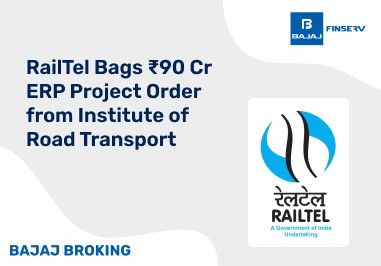BAJAJ BROKING
Ather Energy IPO is Open!
Open a Free Demat Account
Trade Now, Pay Later with up to 4x
Track Market Movers Instantly
Oil Ministry Seeks Removal of Windfall Tax on Crude Oil
Synopsis:
India’s Oil Ministry has requested the removal of the windfall tax on crude oil production. The tax, imposed in 2022 due to high oil prices, has become less relevant with Brent crude now trading around $75 per barrel.
Oil Ministry news today
India’s Oil Ministry has formally requested the removal of the windfall tax on domestic crude oil production, as global oil prices have significantly stabilised compared to the volatile levels seen in 2022. This request is now under review by the Finance Ministry, which will determine the next steps regarding this tax policy.
The windfall tax was introduced in July 2022, when global crude oil prices surged in response to the Russia-Ukraine war and Western sanctions on Russian oil. At the time, the Indian government implemented the tax to capture a portion of the unexpected profits earned by domestic oil producers and refiners, including major players such as Reliance and ONGC.
OIL INDIA LTD
Trade4104.85 (1.19 %)
Global oil price decline reduces the need for tax
The original rationale behind the windfall tax was to curb the excessive profits made by oil companies due to elevated global prices. However, with Brent crude prices now hovering around $75 per barrel—down from over $92 per barrel earlier this year—the relevance of the tax has diminished.
In September 2024, the Indian government took initial steps toward easing the tax burden by reducing the windfall tax on crude oil production to ₹1,850 per tonne from ₹2,100 per tonne. This was part of a periodic review process, where the government evaluates the tax every fortnight based on global oil price trends.
Impact on oil industry players
The potential removal of the windfall tax on crude oil would provide substantial relief to domestic oil producers, especially for companies like Reliance and ONGC. Both firms had faced reduced refining margins due to the tax, and its removal could help them recover some of the profitability lost over the past two years.
The windfall tax, while beneficial for government revenue, has long been a point of contention for the oil industry, as it was viewed as a temporary measure with no clear end date. With global oil prices now stabilising, the call for its removal reflects a shift in policy as the sector returns to more predictable market conditions.
As the Finance Ministry considers the Oil Ministry's request, the decision to remove the windfall tax on crude oil could mark a significant change in India’s fiscal policy for the energy sector, aligning with current market realities.
Disclaimer: Investments in the securities market are subject to market risk, read all related documents carefully before investing.
This content is for educational purposes only. Securities quoted are exemplary and not recommendatory.
For All Disclaimers Click Here: https://bit.ly/3Tcsfuc
Share this article:
Read More Blogs
Disclaimer :
The information on this website is provided on "AS IS" basis. Bajaj Broking (BFSL) does not warrant the accuracy of the information given herein, either expressly or impliedly, for any particular purpose and expressly disclaims any warranties of merchantability or suitability for any particular purpose. While BFSL strives to ensure accuracy, it does not guarantee the completeness, reliability, or timeliness of the information. Users are advised to independently verify details and stay updated with any changes.
The information provided on this website is for general informational purposes only and is subject to change without prior notice. BFSL shall not be responsible for any consequences arising from reliance on the information provided herein and shall not be held responsible for all or any actions that may subsequently result in any loss, damage and or liability. Interest rates, fees, and charges etc., are revised from time to time, for the latest details please refer to our Pricing page.
Neither the information, nor any opinion contained in this website constitutes a solicitation or offer by BFSL or its affiliates to buy or sell any securities, futures, options or other financial instruments or provide any investment advice or service.
BFSL is acting as distributor for non-broking products/ services such as IPO, Mutual Fund, Insurance, PMS, and NPS. These are not Exchange Traded Products. For more details on risk factors, terms and conditions please read the sales brochure carefully before investing.
Investments in the securities market are subject to market risk, read all related documents carefully before investing. This content is for educational purposes only. Securities quoted are exemplary and not recommendatory.
For more disclaimer, check here : https://www.bajajbroking.in/disclaimer
Our Secure Trading Platforms
Level up your stock market experience: Download the Bajaj Broking App for effortless investing and trading













